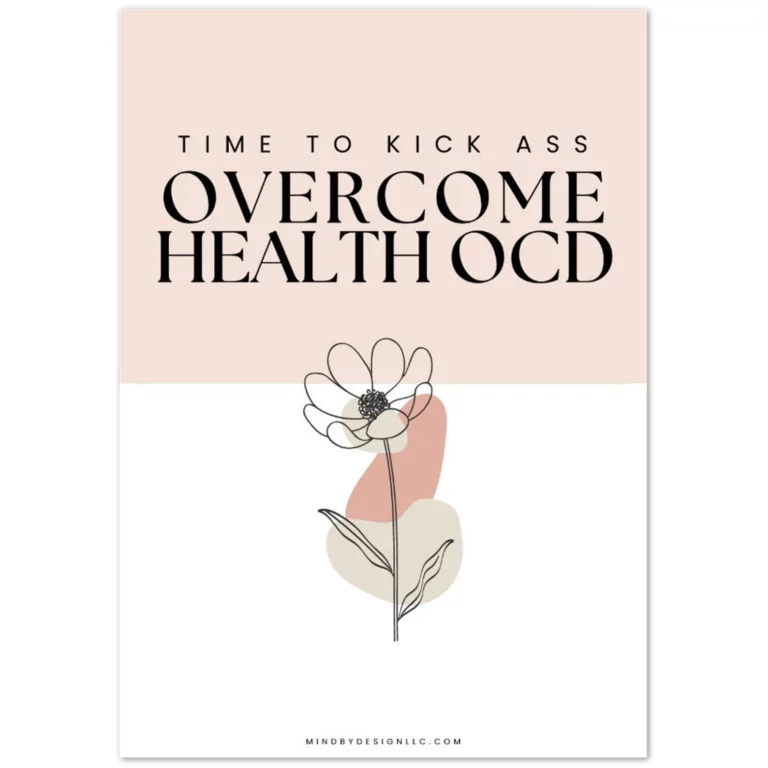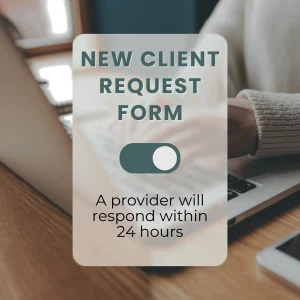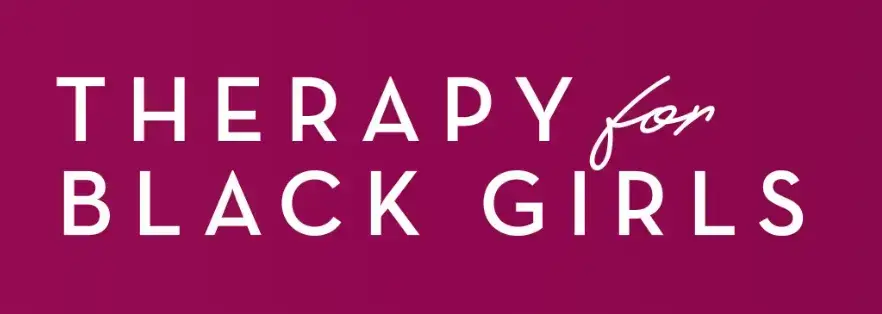Health Anxiety Sucks.
But these 2 Treatment Options Can Help
Health anxiety, often intertwined with Obsessive-Compulsive Disorder (OCD), is a persistent worry about one’s health, usually to the point where it causes great distress and affects daily living. This article, drawing from the expertise of OCD and anxiety specialists, aims to provide a roadmap to understanding and managing health anxiety effectively.

What is Health Anxiety?
Health anxiety is more than just concern over normal health issues; it’s an excessive preoccupation with the idea of having a serious but undiagnosed medical condition. Specialists note that it’s characterized by constant worry, checking for signs of illness, and seeking reassurance, often leading to significant distress.
The Relationship Between OCD & Health Anxiety
OCD is a disorder marked by unwanted and intrusive thoughts (obsessions) and repetitive behaviors (compulsions). When OCD focuses on health, it may cause individuals to obsess over the idea that they are sick or will become sick, leading to compulsive behaviors related to health checking or avoidance. OCD has subcategories, or specifies, to help clients and therapists understand specific symptoms, such as “health OCD”.
Signs & Symptoms of Health Anxiety
Recognizing the symptoms is the first step to managing health anxiety. Symptoms can be both physical (like palpitations or stomach upset) and psychological (constant worry or checking behaviors).
Physical symptoms of Health Anxiety may include
- restlessness
- muscle tension
- trouble sleeping
- headaches
- stomach upset
- dizziness/feeling faint
- sweating
- feeling shaky
Cognitive Symptoms of Health Anxiety May Include
- persistent intrusive thoughts about their health,
- difficulty concentrating on anything other than their health concerns,
- ruminating/fixating on health and/or hygiene
Behavioral Symptoms of Health Anxiwety May Include
- avoidance of certain places/people that could increase exposure to health related issues
- Asking others about their health to ensure they limit exposure to illness
- excessive cleaning and disinfecting
- excessive checking for signs of sickness (i.e., checking temperature)
Managing Symptoms of Health Anxiety
- Establishing a Healthy Routine:
- Creating a balanced routine can provide structure and reduce the unpredictability that fuels anxiety.
- Mindfulness and Relaxation Techniques:
- Practices like meditation, deep breathing, or yoga can help calm the mind and reduce anxiety symptoms.
- Cognitive Behavioral Strategies:
- Learning to challenge and change unhelpful thought patterns is a core part of managing health anxiety.
- Building a Support Network:
- Connecting with others who understand can provide comfort and practical advice.
- Educating Yourself About Health Anxiety:
- Understanding the condition demystifies it and reduces fear.
- Limiting Health Information Overload:
- Too much information, especially from unreliable sources, can exacerbate anxiety.
- Celebrating Progress and Small Victories:
- Recognizing and celebrating each step forward can motivate continued effort and improvement.
- Professional Therapy Options:
- Therapists specializing in OCD and anxiety can provide tailored strategies and support.
Top Two For Treating Health Anxiety
There are effective therapeutic strategies specifically designed to address and alleviate symptoms of health anxiety. The most prominent types of therapy for health anxiety are Cognitive Behavioral Therapy (CBT) and Exposure and Response Prevention (ERP). Both approaches have unique methodologies and are often used to help individuals manage and overcome their health-related fears.
Cognitive Behavioral Therapy (CBT) for Health Anxiety
Cognitive Behavioral Therapy (CBT) is a popular therapy approach used to dysfunctional emotions, behaviors, and cognitions through a goal-oriented process. It is based on the concept that our thoughts, feelings, and behaviors are interconnected, and that changing negative thought patterns can lead to changes in feelings and behaviors.
How CBT Works for Health Anxiety
- Identifying Distorted Beliefs: CBT helps individuals with health anxiety identify and challenge their distorted beliefs about health, illness, and medical symptoms. These might include overestimating the likelihood of having a serious disease or misinterpreting bodily sensations as a sign of severe illness.
- Cognitive Restructuring: Once these beliefs are identified, CBT works to reframe them into more realistic and less anxiety-provoking thoughts. For instance, replacing the thought “This headache must be a brain tumor” with “It’s more likely that this headache is due to tension or dehydration.”
- Behavioral Experiments: CBT often involves behavioral experiments where individuals test out their beliefs by engaging in activities they have been avoiding due to health anxiety. This might include gradually reducing the frequency of doctor’s visits or resisting the urge to constantly check their body for signs of illness.
- Stress Reduction Techniques: CBT incorporates various stress reduction techniques such as relaxation training, deep breathing exercises, and mindfulness to help reduce the physiological symptoms of anxiety.
Exposure & Response Prevention (ERP) for Health Anxiety
Exposure and Response Prevention (ERP) is a type of Cognitive Behavioral Therapy specifically designed to treat anxiety disorders, OCD, phobias and more. It involves a safe and gradual exposure to the stress-inducing thought, image, object, and/or situation to help clients preventing their typical anxiety response, such as avoidance or compulsive behaviors.
How ERP Works for Health Anxiety
- Exposure: In the context of health anxiety, exposure involves gradually and systematically confronting fears about health and illness. This might include reading about diseases, visiting hospitals, or touching objects perceived as contaminated.
- Response Prevention: Alongside exposure, individuals are encouraged to refrain from engaging in their usual compulsive behaviors, such as seeking reassurance from doctors or constantly checking their body for signs of illness. This helps break the cycle of anxiety and compulsive behavior by demonstrating that the feared outcome does not occur or is not as severe as expected.
- Habituation: Over time, repeated exposure to the feared situation or thought leads to habituation, where the individual becomes less sensitive and reacts with less anxiety. This process helps diminish the power of health-related fears.
- Self-Efficacy: ERP helps increase the individual’s confidence in their ability to manage anxiety-provoking situations related to their health. This increased self-efficacy can lead to significant reductions in health anxiety symptoms.
Both CBT and ERP are supported by extensive research and are considered effective treatments for health anxiety. They can be conducted individually, in groups, or even via self-help resources under professional guidance. The choice between CBT and ERP, or a combination of both, often depends on the individual’s specific symptoms, treatment goals, and preferences. It’s important for anyone considering therapy for health anxiety to consult with a qualified mental health professional who can provide guidance on the most appropriate treatment approach.
Take the Next Step Towards Overcoming Health Anxiety
Conquering health anxiety is a process of learning, confronting and slowly but surely overcoming the fear and anxiety that is holding you back. Remember, health anxiety is a common and treatable condition. With the right approach, guidance, and support, you can learn to manage your worries and lead a more relaxed and fulfilling life. Whether you choose CBT, ERP, or a combination of both, the most important step is to start your journey towards recovery. As you explore these top treatment approaches, keep in mind that patience, persistence, and a positive outlook are your allies in conquering health anxiety. Embrace the journey with an open heart and mind, and watch as you transform your fears into strengths.
FAQ's About Therapy in New Jersey
How do I get started as a new client?
New Clients can reach out to us directly via call, text or email here:
Or, you can complete a new client form and we’ll reach out to you within 24 hours here:
What is your cancellation policy?
We ask that clients provide at least 24 hours notice in the event that they need to cancel to avoid the 50% cancellation fee. we understand that life happens and do our best to be flexible & reschedule.
Does my insurance cover my visits?
We provide”Courtesy Billing” for clients who are using the Out-of-network insurance benefits.
Our Insurance Page shares a small blurb about Why We Left Insurance Panels
Is Online Therapy As Effective As In-Person Therapy?
Online therapy is essentially face-to-face counseling, just conducted remotely. Studies show that teletherapy is as effective as traditional counseling. Professional organizations and state governments recognize its benefits and have set regulations for it. However, like any therapy, its success in achieving your goals isn’t guaranteed. It’s important to discuss with your therapist whether teletherapy is working for you.
Can I Change Therapists If I'm Not Happy?
Yes, you can switch therapists to another provider within the practice, or we can provide you a referral if preferred. We want to ensure that your time and effort are well spent, and that you are getting the relief you need, that’s why we work collaboratively with each other in the practice, as well as outside therapists who we know and trust.
Do you offer traditional talk therapy?
of course! though we have some unconventional therapy approaches, we are rooted in evidenced based practices. Talk therapy is a major player in the therapy room! See What we Treat and Integrative Services for more information
How Do I Know If Therapy Is Helping?
You should feel like you’re making progress. Signs it’s working include:
Feeling comfortable talking to your therapist
Your therapist respects boundaries
You’re moving towards your goals
You feel listened to
You’re doing better in life
Your self-esteem is getting better
Is Online Therapy Easy to Use for Non-Tech-Savvy People?
Yes, it’s pretty simple to access sessions. You’ll need basic internet skills, such as opening and visiting the patient link sent to you via email. It’s similar to video chatting like Facetime or Zoom. We can also walk you through it on the phone the first time to ensure a strong connection
What Questions Should I Ask My New Therapist?
Feel free to ask anything. Some good questions are:
- How often will we meet?
- What do you specialize in?
- What experience do you have with my issue?
- What outcomes can I expect?
- How will I know I’m progressing?
- How long do you usually work with clients?
- How will we set my treatment goals?
How Should I Prepare for My First Session?
Showing up is all that you need to do! But if you really want to get the most out of session, it could help to take some time to think about what you want from therapy. It helps to write down your goals, questions you have or things that you feel are important to share.
What is the difference between associate therapists & fully licensed therapists?
Our Qualifications:
Our founder, Rebecca Sidoti, is a highly qualified, state-licensed therapist and supervisor with extensive training in anxiety related disorders and innovative treatment such as Ketamine Therapy. Mind by Design Counseling adheres to standards set by the our governing counseling boards.
To see each providers credentials, training and licenses, visit our “Meet the Therapists” Page to learn more.
- LAC/LSW are therapists who may practice clinical work under the supervision of a fully licensed therapist.
- LPC/LCSW are therapists who have completed the necessary clinical hours post-graduation under supervision and can practice clinical work independently.
What Geographic Areas Are Served?
Currently, we serve clients in New Jersey and are expanding to other states as telehealth laws evolve. While telehealth offers the convenience of attending sessions from anywhere, state laws require clients to be in-state during their session.
Is Virtual Counseling Suitable for Everyone?
Online therapy might not be as effective for individuals with chronic suicidal thoughts, severe trauma, significant mental health history, or those recently in intensive care. Such cases often benefit more from traditional, in-person counseling. We’ll help you decide if our online services are right for you during your intake and evaluation.
What Equipment is Needed for Online Therapy?
To join a session, log in using the credentials we provide. No downloads are needed. Our platform, compatible with both individual and group sessions, requires:
A computer or mobile device with a webcam and internet access.
We’ll help you test your setup before your first appointment to ensure a reliable connection. iOS users should use the Safari browser for mobile and tablet sessions.
What Questions Will Therapists Ask Me?
It depends on your goals. Expect questions about your thoughts, feelings, relationships, work, school, and health. They’ll ask to understand your therapy goals.
How Do You Keep Client Information Secure?
Security and Confidentiality of Sessions:
Your privacy is crucial to us. We use TherapyNotes, a HIPAA-compliant platform, ensuring secure and confidential teletherapy sessions. This platform’s security features include encrypted video connections, secure data transfers, and encrypted databases, ensuring your information is safe at all times.
What is VRT used for?
we use VRT to support Exposure Therapy, a long standing traditional therapy modality to treat phobias, anxiety and stress. we send a headset directly to your home so you can access VRT from anywhere.
VRT not only helps with exposure therapy for phobias, but is great for ADHD, mindfulness, PTSD and social anxiety.











